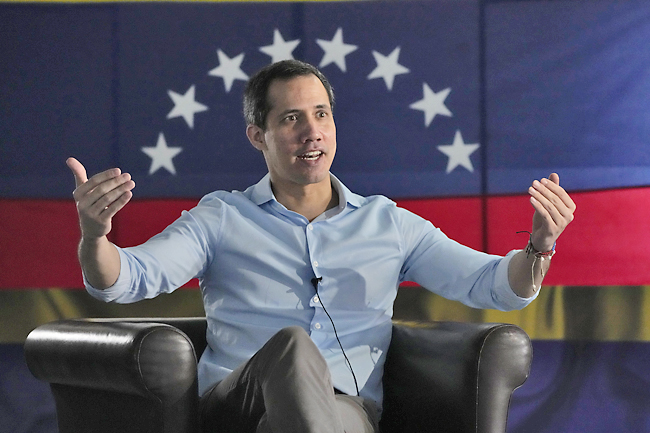CARACAS, VENEZUELA (AP) – The Venezuelan opposition was re-energised recently by an unexpected gubernatorial victory in the home state of the late President Hugo Chavez.
Now it is trying to use that momentum to bring its divided factions together and launch yet another attempt to topple his political heirs.
Three years after he proclaimed himself the legitimate leader of Venezuela, Juan Guaidó, his United States (US)-backed opposition allies and other adversaries of President Nicolas Maduro will convene this week in the capital, Caracas, to work on a big-tent strategy as they gear up for a presidential election they hope may be held before its scheduled 2024 date.
The goal is to consider how to “incorporate not only the political parties that make up the democratic alternative but also former Chavismo supporters, as one group is called, or Chavismo dissidents, as another group is also called”, Guaidó told The Associated Press in an interview on Thursday, using the Spanish-language term for the political movement begun by Chavez, who died in 2013.
Guaidó rose to international prominence in 2019 when he declared Maduro’s presidency illegitimate and himself acting president, establishing a parallel government.

He was recognised as leader by dozens of countries, including the US, and led large protests in Caracas. But the enthusiasm and support he saw three years ago has waned both abroad and at home, in part because the pandemic kept people from organising and protesting, as well as a perceived sense that the opposition’s promise to do away with Chavismo remains elusive.
Opposition candidates garnered the most votes in the November regional elections. But unable to line up behind consensus candidates, they split the anti-Maduro vote – enabling his United Socialist Party of Venezuela to take more than 200 of 322 municipalities and most governor’s races.
So that result was seen as both a sign of the opposition’s high potential and, Guaidó said, a “wake-up call” to a desperate need to strengthen unity.
One race where the opposition did succeed gave them particular reason for optimism: They shocked the ruling party by winning the governorship in the northwestern state of Barinas, where the Chavez family had governed for more than two decades.
In addition to the upcoming meetings in Caracas, Guaidó and other leaders from across the country are holding a rally today to present their unity plan to Venezuelans – though getting the message out remains a challenge given the state’s domination of local media.
“For us, doing politics today in Venezuela is like doing politics in any country 100 years ago,” Guaidó said.



















































